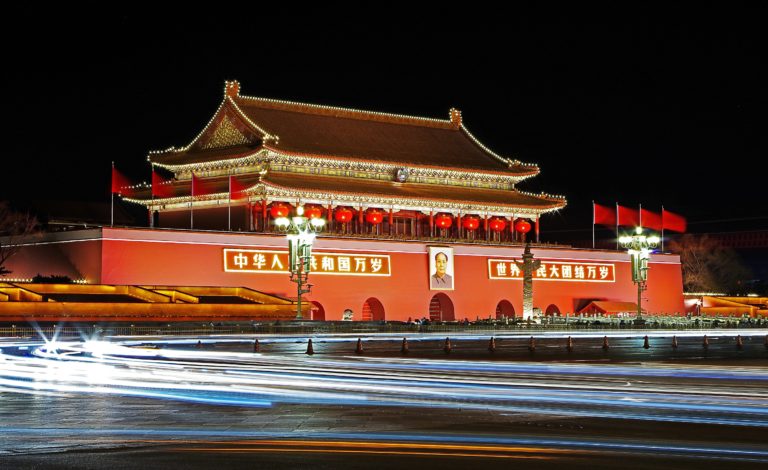Chen Guang Cheng’s great escape from house arrest, oppression and beatings has taken an awkward twist, with the activist in the custody of the Chinese government and the US administration feeling the heat from human rights activists across the world. The Twitter-verse turned from joyous to shocked to depressed as word came through from people like activist Zeng Jinyan and Chen’s lawyer, Teng Biao, that Chen was safe in the Embassy, then, suddenly, that he was leaving the US Embassy for Beijing’s Chaoyang Hospital.
As soon as that news was reported, Chen’s supporters around the world let out a collective groan of dismay. Releasing Chen to the Chinese government is basically the kiss of death, no matter what assurances the Chinese authorities give concerning his safety and the safety of his family. Yet that is exactly what the US did. For several hours last night, the mood was both somber and furious as friends called for action, shook their heads at US diplomacy and worried that Chen would disappear, this time forever.
All things are murky now. Men in black suits and black cars picked up Zeng Jinyan this morning and she is now under house arrest, according to a tweet earlier today. Representative Chris Smith has called for a Congressional Hearing on Chen’s case and Chen himself told CNN’s Steven Jiang that the Embassy lied to him (must read interview transcript).
How did it come to this?
Originally, Chen wanted to stay in China to continue his fight for human rights and be with his family. That was his own conviction and also what he told his lawyer, his friends and Embassy officials. During the past six days, the Chinese and Americans negotiated Chen’s fate, ostensibly with his desires in mind.
The Chinese either offered a position at a university and assurance that Chen would be with his family and unmolested or threatened to beat his wife to death unless he came out of the Embassy and surrendered to the Chinese government. Or both. The US either heeded his wishes to stay in China and negotiated a deal in which the US government, the media and NGOs would be responsible for making sure the Chinese government kept its word, or they lobbied Chen to leave the Embassy as quickly as possible and took advantage of Chen’s lack of information to get him out of the way asap. Or both.
One of the more interesting pieces I read about the case comes from Slate, and it concerns exile and the effect distance has on the power of one’s voice:
“For an authoritarian regime, there’s no tidier way to get rid of an opponent than exile. It’s better than prison, or house arrest, or even murder. When an outspoken critic is sent packing, he loses most of his punch. He can no longer easily organize others to rally against the regime and its crimes. While he may still rail against his former tormentors, his words lose their bite when they are lobbed from so many miles away. We may all welcome the fact that the dissident is safe from the regime, but it is also true that the regime is now safe from the dissident.”
Chen knew his message and his fight would be diluted if he left China, but according to all of the things I have seen and heard in the past six days, it was Chen’s love for his family that kept him in China, as much as his will to fight on. When he left the embassy for Chaoyang Hospital, Chen was under the assumption that he would be meeting his wife and child and that Embassy officials would be with him. It is unclear what really happened in the hospital. According to a telephone conversation with his lawyer, Chen was alone in the hospital with his family, without food, surrounded by Chinese security people and Embassy officials were not picking up his calls.
Later, CNN reported that Chen was disappointed with Obama and was pleading for Clinton to take him and his family with her when she leaves. Twitter is now ablaze with demands (from Chen’s friends, from journalists) that Secretary of State Clinton take Chen and his family with her into exile after the US-China Strategic Economic Dialogue taking place right now between high level US and Chinese officials.
In yet another CNN report, the deal between the two governments is hailed as a major breakthrough and a “big moment for China”:
But Chen got “probably the best deal an individual Chinese dissident could get” with the help of U.S. officials, said Jamie Rubin, who served as assistant secretary of state in the Clinton administration.
“I suspect, as is usually the case in these things, there was a little bit of gray,” Rubin said. “U.S. officials probably did have to make clear to them that they don’t run China, the United States is not in a position to dictate to China how to treat its citizens. But I think what he got, which no other dissident in modern memory has got, was an American official at the level of secretary of state or assistant secretary of state basically pursuing over many days the terms of his ability to live in China in as much freedom as possible.”
But Rubin’s rosy assessment doesn’t quite resonate though, even if its true that the negotiations ended with the Chinese agreeing to those terms. The word of the Chinese government – or any government for that matter – is not to be trusted. And although US diplomats might feel that what they accomplished was a big deal, the reality is much more depressing, as Melinda Liu writes in the Daily Beast:
[Bill] Fu confirmed also that Chen seemed “absolutely clear” that he wanted to go to the U.S. now. And Fu said his offer to help Chen leave via a network of sympathizers inside China was still open: “Absolutely. If there’s an opportunity for us to get him and his family out, as a secondary option, we can do it. We have the tools and the personnel to do it. He can be out in 24 hours.”
But in order to go abroad, Chen and his family need passports—and in order to apply for them, the family would have to go back to Shandong, where the provincial thugs are waiting. “If the U.S. can intervene, and if the Chinese central government can make a phone call, those passports can be ready in a day. It might require a diplomatic push,” said Fu hopefully. “Nothing would make me happier than to get Chen and his family onto Hillary’s plane out of there.”
And nothing would thrill Chen more, either. “Please try to contact the embassy to send someone over here. I need your help, I’m absolutely, absolutely ready to fly out on Hillary Clinton’s plane. Please tell the embassy what I’m saying, Meiyuan,” he pleaded from his hospital room, using my Chinese name. “I don’t know why the Americans didn’t answer my phone calls.”







One thought on “Chen Guang Cheng in Limbo …”